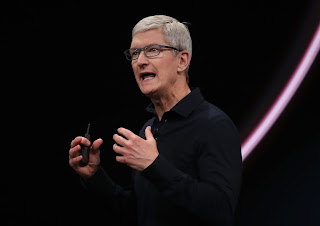The current US political climate has many unusual effects, including an increase in corporate CEOs releasing statements that condemn political initiatives from right-wing activists. An example is North Carolina’s “bathroom bill” removing the right of individuals to use bathrooms that correspond to their gender identity—a highly divisive piece of legislation that led to a public letter of opposition from nearly 100 CEOs. Of course, CEOs have always been free to speak and write publicly on any issue they want; indeed, this is just one of the many freedoms that US citizens enjoy—and that increase opposition to laws specifically written to take freedoms away from minorities. But CEOs have rarely been outspoken in the past. Now that some of them are finding their public political voice, we may wonder why they are doing so and what this change does to their organizations.
These are the questions explored in research published in Administrative Science Quarterly by Adam J. Wowak, John R. Busenbark, and Donald C. Hambrick. They looked at the example I mentioned above, comparing the CEOs who did or did not sign the letter opposing the “bathroom bill.” To see why this research is interesting, let us start with the question of whether the CEOs signing the bill were brave. Certainly, some Republican politicians created this impression by issuing threats against outspoken CEOs. But CEOs care more about their companies than about politicians, and CEO signing could be predicted quite well by whether their employees opposed the bill. Signing was more astute than brave, one might say, though no doubt many CEOs were themselves outraged by the bill.But a CEO of any large company will be leading many employees with different political views, so it is still fair to ask whether publicly opposing the bill might harm the company by reducing employees’ commitment to it. Fortunately, Wowak, Busenbark, and Hambrick collected data to answer exactly this question. It turns out that when the CEO signed the letter opposing the bill, their employees’ commitment to the firm was reduced if the employee population was mostly conservative, unchanged if it was moderate, and increased if it was mostly liberal. No surprise there, and a good explanation for why CEO signing was more likely if the employees were liberal. More importantly, CEO signing also influenced employees’ political views, turning liberals more liberal and conservatives more conservative. Arguably that is exactly the kind of division that CEOs don’t want in their organizations, so it is a crucial and bad outcome.
Was there any way out of this dilemma? It turns out that a CEO who can be seen as very typical for that firm becomes disproportionately influential in changing employee commitment and liberalism. By signing the bill, a highly prototypical CEO at a liberal firm strongly increased liberals’ commitment to the firm and to their own liberalism. By signing the bill, a highly prototypical CEO at a conservative firm strongly decreased conservatives’ commitment to the firm and increased their conservatism. Ideologically conservative employees may resent being represented by a CEO with the opposite political view, but perhaps they resent even more being represented by a CEO they consider similar to themselves who takes a liberal stance on a public issue.
What about CEOs who have a high personal reputation? The story here is that a CEO held in low regard who makes a political statement is more deeply divisive in both organizational commitment and liberalism than a CEO held in high regard. The less-regarded CEOs who signed the letter had a more-positive impact on liberal employees’ commitment and liberalism—and a more-negative impact on conservative employees’ commitment and liberalism—than highly regarded CEOs. If this is not surprising, consider the following: Did you ever think that the benefit of a high personal reputation would be that people would feel free to ignore what you said?
Organizational life is full of surprises. Political life is full of surprises. No wonder that combining the two can be surprising.
